
Brazil


Advocacia Del Chiaro
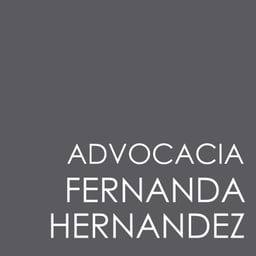
Advocacia Fernanda Hernandez

Amaral e Nicolau Advogados

Amatuzzi Advogados

Araújo e Policastro Advogados
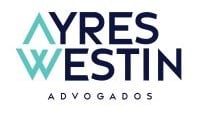
Ayres Westin Advogados

Azevedo Sette Advogados

B/Luz

Barreto Advogados & Consultores Associados

Basch & Rameh

Basch & Rameh Advogados Associados

Bermudes Advogados

Bhering Advogados

Bocater, Camargo, Costa e Silva, Rodrigues Advogados

Brandao Ozores Advogados

Bumachar Advogados Associados

Campos Mello Advogados

Cescon Barrieu
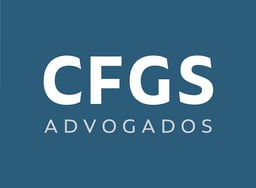
CFGS Advogados

CGM Advogados

Cleary Gottlieb Steen & Hamilton

Clifford Chance

Coelho Murgel Atherino Advogados

Corrêa Ferreira Advogados

COSRO

Costa & Rocha Advogados (CAR)

Dannemann Siemsen Advogados

De Luca, Derenusson, Schuttoff Sociedade de Advogados

Del Chiaro Pereira Advogados

Demarest Advogados

Diamantino Advogados Associados S/C

Dias De Souza Advogados Associados

DLA Piper Brazil

Duarte Garcia, Serra Netto e Terra Advogados

E. Munhoz Advogados

Ecija

Ernesto Borges Advogados
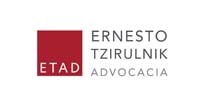
Ernesto Tzirulnik Advocacia

Escritório Jurídico Carbone

Escritório Villemor Amaral

FAS Advogados, in cooperation with CMS
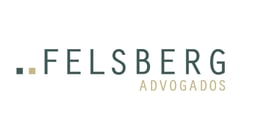
Felsberg Advogados

Ferro, Castro Neves, Daltro & Gomide Advogados

Finocchio & Ustra Sociedade de Advogados

Franco Leutewiler Henriques Advogados (FLH Advogados)

Freire, Gerbasi e Bittencourt Advogados

Galdino, Pimenta, Takemi, Ayoub, Salgueiro, Rezende de Almeida

Garcia de Lima Sociedade de Advogados

Garé Advogados

Gerson Branco Advogados

Giamundo Advogados

Grinberg Cordovil Advogados (GCA)

GVBG - Gentil Monteiro, Vicentini, Beringhs e Gil Advogados

Hogan Lovells

Iokoi, Paiva, Jonasson e Scalzaretto Advogados

Jones Day

Julião Coelho Advocacia

Justen, Pereira, Oliveira & Talamini Advogados

Kincaid | Mendes Vianna Advogados

KLA Advogados

Lefosse Advogados
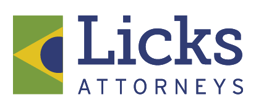
Licks Attorneys

Limongi Advocacia

Machado Associados

Machado Meyer Sendacz e Opice Advogados

Madrona Advogados

Magalhães e Dias - Advocacia

Manesco Advogados

Manesco, Ramires, Perez, Azevedo Marques Sociedade de Advogados
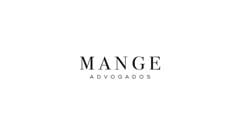
Mange Advogados

Mannrich e Vasconcelos Advogados

Martinelli Advogados

Martinelli Advogados DELETE

Mattos Filho

Medina Osorio Advogados

Mello Torres

Milbank

Monteiro e Monteiro Advogados Associados
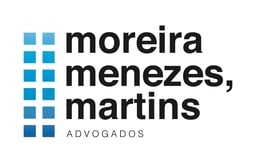
Moreira Menezes Martins Advogados

Norton Rose Fulbright

Oliveira e Olivi Advogados Associados

Peixoto e Cury Advogados

Perdiz de Jesus Advogados Associados

Pinheiro Guimarães

Pinheiro Neto Advogados

Proskauer Rose LLP

Queiroz Cavalcanti Advocacia

Rafael Pandolfo Advogados Associados

Rayes e Fagundes

Rhein Schirato & Meireles

Ricardo Siqueira Sociedade de Advogados

Rossi, Maffini, Milman Advogados

SA Law

Salomão Advogados

Saud Advogados

Schmidt, Lourenço & Kingston Advogados

Silveira Ribeiro Advogados

Silveiro Advogados

Simpson Thacher & Bartlett LLP

Siqueira Castro – Advogados

Souto Correa Advogados

Stocche Forbes Advogados

Strobel Guimarães Sociedade de Advogados

Strobel Guimarães Sociedade de Advogados (SG Advogados)

Szazi, Bechara, Storto, Reicher e Figueirêdo Lopes Advogados

Tauil & Chequer Advogados

Tavares & Chacur de Miranda Advogados

Thomaz Bastos, Waisberg and Kurzweil Advogados

Toron Advogados

Tortoro, Madureira & Ragazzi Advogados
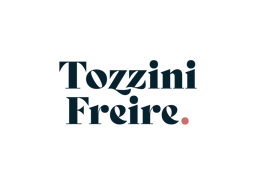
TozziniFreire

Trench Rossi Watanabe

Veirano Advogados

Vella Pugliese Buosi and Guidoni Advogados

Vella Pugliese Buosi e Guidoni Advogados

Vella, Pugliese, Buosi e Guidoni Advogados

Villemor Amaral

Wald, Antunes, Vita e Blattner Advogados

White & Case LLP

Winston & Strawn

Wongtschowski Kleiman Advogados
News & Developments
ViewPress Releases
AUTONOMOUS DRIVING AND REGULATORY PATHWAYS – A BRAZLIAN APPROACH FROM THE U.S. EXPIRIENCE
The promise of reducing accidents and revolutionizing sectors such as automakers and insurance companies faces an urgent challenge: creating clear rules to allow testing and safe circulation of autonomous vehicles on the streets.
Thinking about autonomous vehicles may seem futuristic, but it is also a reflection on the present. In Europe, different countries have already regulated the development and introduction of the technology in traffic, such as Germany, the first country in the world to do so in 2021, and the United Kingdom, very recently. In the United States, a pioneer country for autonomous vehicles (“AV”), commercial AV based mobility service provider like Uber and Waymo are already on the market and in the US-States Texas and California local state regulation are already in place.
Comparing the existing legal framework for AV vehicles globally for instance the liability for car crashes is regulated inconsistent. Further, research showed that the regulatory framework for AVs follows two different regulatory approaches: the pro-business approach, leaving the providers freedom and the regulatory approach which tries to eliminate the security risk of the AVs.
In Brazil, the first car to travel on urban roads for more than 70 km was IARA in 2017, a technology developed by the Federal University of Espírito Santo. Today, it is applied in port operations and logistics through the Espírito Santo-based startup Lume Robotics, involving different companies in the sector and state entities. However, the regulatory scenario does not keep up with the speed of Brazilian innovation. Although Bill 1317/2023 is currently proceeding in the National Congress, although its current text has much to gain from the maturity of international experiences.
Given the expectation that it will enhance traffic safety, grant mobility also for elderly or handicapped people, secure extra time to driver for emails or reading as well as have repercussions on several sectors of the economy, such as in-car entertainment providers and insurance companies, if the impact of autonomous driving is as significant as expected, it is essential to have clear rules that ensure precisely this purpose. It must be avoided that over regulation hinders the development of AV businesses by determining only allowed and prohibited safety limits. Further, inconsistent rules regarding the driver’s liability for car crashes caused or not by a malfunction of the driving system will discourage customers to rely on their driving system or pay extra for the auto pilot/driving assistant.
This is because the promise that technology will increase traffic safety by reducing the human error factor, significantly lowering accident rates, has as a counterpart the relevant risk of system’s decision or failures that cause lethal or non-lethal accidents. Also, it cannot be ignored that traffic is an essentially human environment, filled with unpredictable and uncontrollable factors, such as a pedestrian crossing outside the crosswalk or countless other examples.
In other words, the current moment in Brazil is not only important, but indeed essential and it represents an opportunity to allow autonomous driving to be truly safe in the Brazilian experience. So, what can we learn from international experiences?
Changing traffic rules is a sensitive endeavor, with various implications and challenges related to social and institutional acceptance. From the perspective of international experience, we observe the conservative German approach and the British model, which already establishes preliminary liability for insurers. Within the scope of this brief reflection, we turn to the legal developments taking place in the United States.
Despite the contrast between California and Texas laws, both states are concerned with identifying the human presence in the safe operation of autonomous driving. While California requires a human operator who, to some extent, monitors the circulating vehicles remotely or onboard, Texas law lacks clarity regarding continuous monitoring. However, it imposes duties on the manufacturer and the owner to keep the autonomous driving system (SAE levels 4 and 5[1]) operating in accordance with traffic laws.
Despite their differences, both regulations aim to ensure safety and damage reduction measures, especially for the manufacturer. In other words, starting from the freedom-responsibility binomial as a premise, it is up to the manufacturer to do everything within their reach to ensure that autonomous driving is as safe as possible for passengers and the entire community.
In other words, acting freely, because it is allowed or not prohibited by law, imposes duties and precautions whose noncompliance may lead to significant legal consequences. Just imagine an accident, caused or not by a malfunction in the system, resulting in serious injuries or even the death of one of the parties involved. Note that the same example may be applicable, for instance, to a hypothetical test on a highway and to a not-so-distant future of app-based passenger transport.
Texas regulation generically imposes the duty of safety, requiring autonomous driving to comply with traffic laws and be licensed by regulatory agencies. California law, for example, requires that, during the testing phases, companies have a human operator who, in real time, monitors the operation of each of the vehicles. This remote operator, according to the text, must be able to take control of the vehicle remotely and place it in a minimum risk condition and be trained to “safely execute the duties,” including how to react to dangerous situations and potential accidents.
Although imperfect, the experiences of California and Texas can serve as guidance, especially due to the importance of imposing, at the regulatory level, guidelines on safety duties and organizing the bureaucracy related to licenses and specific authorizations from regulatory agencies.
In Brazil, the legal gap presents, on one side, the challenge of technological development under the risks of a lack of legal and regulatory support, and on the other side, the opportunity to discuss and propose the adaptation of this development to the Brazilian legal system. Companies already operating or planning to operate in Brazil face a complex scenario, in which the notion of safety and care must be suited to these circumstances. We have the chance now that we don’t just adapt a foreign legal regimes but discuss the different regulatory approaches and develop a tailored legal framework which suits best to the Brazil country.
Rodrigo Sardenberg
Senior Associate
Compliance, Business Investigations and White-Collar Crime
FAS Advogados in cooperation with CMS
Martin Wodraschke
Head of CMS Automotive & Mobility IFG
CEE German Practice – CMS Law Firm
[1] Society of Automotive Engineers – SAE is the international entity that, together with the International Organization for Standardization – ISO, develops technical standards for the development and circulation of autonomous vehicle technology. The automation levels listed by these entities range from 0 to 5. Level 3 defines conditional automated driving, while levels 4 and 5 differ between high and full driving automation, meaning that the driver's/passenger's level of attention is an important distinguishing factor.
FAS Advogados, in cooperation with CMS - January 14 2026
Press Releases
Life Sciences at KLA Strengthened with New Partner
Lawyer Monique Guzzo brings extensive experience in regulatory projects, working closely with government bodies and regulatory agencies
Lawyer Monique Guzzo joins KLA’s partnership this January, reinforcing the firm’s capabilities in the Life Sciences practice.
With over 16 years of experience and a background in leading law firms, Monique has built her career advising companies in highly regulated sectors such as Life Sciences and Healthcare, as well as Agribusiness, Fixed-Odds Betting, and Education.
Her work is characterized by a strategic approach to complex projects and transactions, with a strong focus on regulatory advisory, negotiation of industry-specific contracts, and handling administrative proceedings before regulatory agencies and government bodies.
In the Life Sciences sector, her practice includes assisting companies subject to health regulations in matters involving ANVISA (Brazilian Health Regulatory Agency), ANS (National Supplementary Health Agency), local Health Surveillance authorities, as well as the National Health Council (CNS), the Drug Market Regulation Chamber (CMED), and professional councils, among other entities.
Monique holds a postgraduate degree in Administrative Law from Fundação Getúlio Vargas (FGV) and is recognized by legal rankings and awards such as Women in Business Law, Legal 500, Leaders League, and Análise Advocacia.
According to KLA’s Executive Committee, her arrival reinforces the firm’s commitment to attracting leaders with business vision and technical excellence. “Monique’s addition brings depth and specialization to our Life Sciences practice, an industry where the firm has a strong presence,” says founding partner Henrique Lopes, a member of the Executive Committee.
KLA Advogados - January 6 2026
Press Releases
Head of AI and Technology Becomes KLA’s New Partner
Ana Carolina Cesar, who joined KLA in 2019, coordinates KLAI, KLA’s artificial intelligence hub, as well as the Data Protection and Intellectual Property areas; she is recognized by rankings such as Legal500.
Starting in January 2026, lawyer Ana Carolina Cesar will join KLA’s partnership. Leading the Data Protection, Intellectual Property, and KLAI (KLA’s AI hub) areas, Ana Carolina spearheads complex projects involving Artificial Intelligence, Technology Transactions, and Data Governance.
Her expertise spans regulated and dynamic sectors, advising players in the Bets, Gaming, Media, and Entertainment markets, with strong involvement in the Creator Economy (influencers and digital advertising).
Recognized by international legal rankings such as Legal 500, Leaders League, Latin Lawyer, and Brazil’s Análise Advocacia, the new partner combines business vision with technical rigor. She is a member of the International Association of Privacy Professionals (IAPP), a recognized specialist by OneTrust DataGuidance, and earned distinction in the Artificial Intelligence Policy program at the Center for AI and Digital Policy (CAIDP).
Ana Carolina holds a Professional Master’s in Law and Management from Universidade Católica Portuguesa and an MBA in IT Management from FIAP.
Her promotion reflects KLA’s commitment to investing in leadership that combines technical excellence and innovation, maintaining a focus on real impact for clients and long-term relationships.
KLA Advogados - December 17 2025
Press Releases
Gran Capital Partners Announces Strategic Investment in Aurok (STK Comércio de Alimentos S.A.)
The corporate and mergers and acquisitions team at Finocchio & Ustra Advogados advised Gran Capital Partners — a Brazilian private equity firm that partners with entrepreneurs by combining capital and management support to scale high-potential businesses — on a strategic investment transaction in STK Comércio de Alimentos S.A. (Aurok), a chain of high-quality meat boutiques with stores in Campinas and Indaiatuba and a vertically integrated operation with its own high-technology processing facility. This is the firm’s third recent investment, following Sterna Café and La Guapa.
The transaction reinforces the ongoing professionalization of the specialized protein retail and gourmet grocery segments, with positive impacts on quality standardization, the shopping experience, and the expansion of the product portfolio for consumers.
As a result, Aurok will be able to accelerate its growth and implement its expansion, with gains in operational efficiency and enhanced professionalization, thereby contributing to the consolidation of the segment in São Paulo.
The transaction was led by partner Andrea Tincani, with the participation of Camila de Godoy Ferreira, Júlia Cristina Arruda Savioli, Carolina Zogaeb, and Enrico Abrahão Oliveira, all from Finocchio & Ustra Advogados.
Finocchio & Ustra Sociedade de Advogados - November 28 2025
